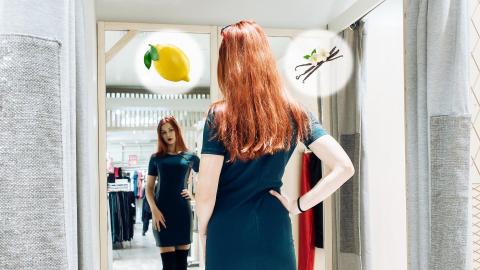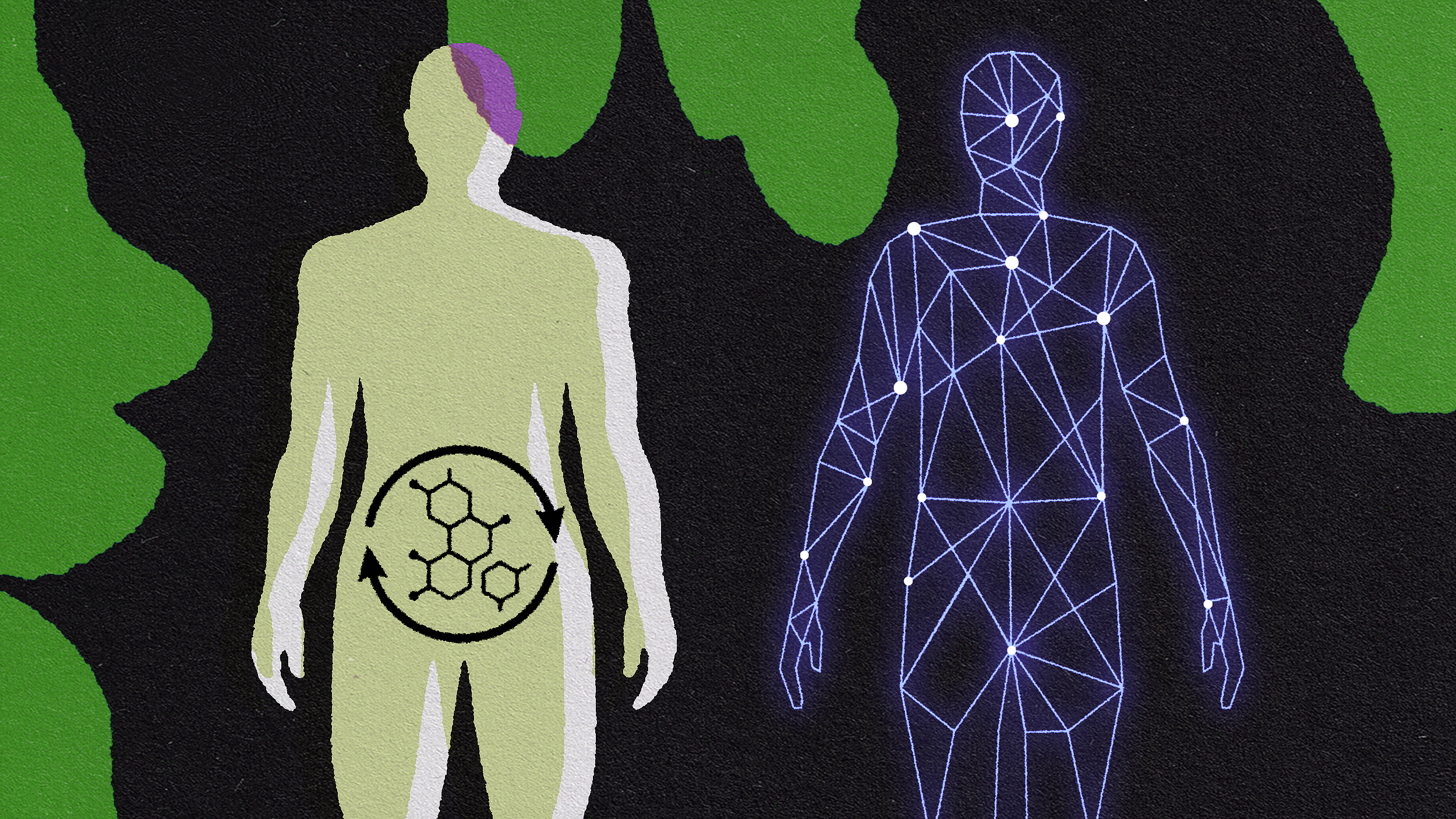Your body image can be influenced by smells and sounds

Credit: Olek/Tim UR/kolesnikovserg/Adobe Stock/Big Think
- Researchers find that there are smells that make us feel thinner and lighter, and other smells that do the opposite.
- The sounds of our footsteps can have a similar effect.
- The researchers suggest that sensory stimuli play a part in our self-image and may be subject to beneficial manipulation.
Who we see in the mirror is more than a matter of lighting or angle. Our self-image is a subjective interpretation of our actual physical characteristics. It’s affected by our feelings and by comparisons we draw between ourselves and other people we look to as examples of what we should look like. Often, the person staring back at us in the mirror bears only a passing relationship to what we really look like, and many people struggle with body image issues.
Now it turns out that body image may also be influenced by sensory stimuli. Certain smells and sounds cause us to think of ourselves as lighter and thinner, while others make us feel thicker and heavier.
The research was conducted in 2019, a collaboration between Sussex University’s Computer-Human Interaction Lab (SCHI), the University College of London Interaction Centre (UCLIC), and the Universidad Carlos III (UC3M) in Madrid.
Lead researcher Giada Brianza of SCHI presented its findings at the 179th Meeting of the Acoustical Society of America last week. She hopes that the researchers’ insights can lead to new and more effective multi-sensory methods for helping people overcome negative body-image issues.
As Light as Your Scent: Effects of Smell and Sound on Body Image Perception (INTERACT 2019)youtu.be
The research involved two different experiments run consecutively.
In one, participants were asked to adjust the dimensions of an onscreen 3D avatar so that it best represented themselves as they were exposed to fragrances. A lemon scent caused the subjects to dial in a lighter body weight. A vanilla odor had the opposite effect.
SCHI lab head Marianna Obrist tells University of Sussex, “Previous research has shown that lemon is associated with thin silhouettes, spiky shapes and high-pitched sounds while vanilla is associated with thick silhouettes, rounded shapes and low-pitched sounds. This could help account for the different body image perceptions when exposed to a range of nasal stimuli.”
Regarding the second experiment, UC3M’s Ana Tajadura-Jiménez says, “Our previous research has shown how sound can be used to alter body perception. For instance, in a series of studies, we showed how changing the pitch of the footstep sounds people produce when walking can make them feel lighter and happier and also change the way their walk.”
The current study’s authors had headphone-wearing participants walk in place on a wooden board as the researchers manipulated the sound of of their footsteps in the headphones, making them higher in pitch or lower. While walking, they were presented with lemon and vanilla scents. The psychological effect of the fragrance became even more pronounced when combined with the sound manipulations.
“We based our study on the concept of crossmodal correspondences,” Brianza tells Inverse, “which is the spontaneous and unconscious association between different sensory stimulations [like when people see colors when they listen to music].”
Says Obrist, “One of the interesting findings from the research is that sound appears to have a stronger effect on unconscious behavior whilst scent has a stronger effect on conscious behavior. Further studies need to be carried out in order to better understand the potential around sensory and multisensory stimuli on BIP [body image perception].”
Brianza says, “Our brain holds several mental models of one’s own body appearance which are necessary for successful interactions with the environment.” She adds, “These body perceptions are continuously updated in response to sensory inputs received from outside and inside the body.”
Considering that what we know of the world—and to an extent, of ourselves—is based on sensory stimuli, perhaps it should not be completely surprising that we may draw unexpected cues from them.
In any event, the researchers’ findings offer tantalizing early clues that may bear therapeutic fruit when it comes to addressing body issues later on. Will it turn out, for example, that scented garments can help us make kinder, more accurate fitting decisions in olfactorily and sonically optimized dressing rooms?
Says Brianza, “Being able to positively influence this perception through technology could lead to novel and more effective therapies for people with body perception disorders or the development of interactive clothes and wearable technology that could use scent to enhance people’s self-confidence and recalibrate distorted feelings of body weight.”





